East Providence teachers win grants for classroom innovation from RI Foundation
EAST PROVIDENCE, RI – Five East Providence elementary school teachers are among the educators statewide who will share nearly $60,000 in grants for classroom innovation. Launched by philanthropists Letitia and John Carter in 2013, the Spark Grants program targets third-grade classes and is designed to give students a life-long love of learning.
“We strongly believe that third grade is a critical stage in the educational development of youngsters,” said Letitia Carter. Over the years, teachers have received nearly $500,000 in grants.
Eligible expenses included software licenses, equipment and other resources that otherwise would not be available to teachers. Spark Grants were for one-time expenses and could not provide ongoing funding to sustain projects.
“As always, Letitia and John Carter are leading innovation by example. Our hope is that their foresight and commitment inspires new creativity and engagement in teachers and their students,” said Neil Steinberg, president and CEO of the Foundation.
At Myron J. Francis Elementary School, third-grade teacher Deborah Brun and Librarian Suzanne Jordan received grants.
Brun will use her Spark Grant to purchase three Apple mini iPads, iPad covers and a charging unit. Her students will use the iPads to develop digital portfolios with a focus on improving reading fluency and attitudes towards reading.
“Digital portfolios have a great potential to impact students’ attitudes toward their education, especially reading. They allow them to develop a sense of ownership and to share their learning in different modalities such as audio and video recordings of book reviews. This will encourage students to read more often and improve their speaking and listening skills,” said Brun.
Students will use the iPads to record themselves reading for their portfolios. By listening to themselves read, students will be able to set goals for improvement. The digital portfolios will enable students to develop a classroom collection of audio and visual book reviews, which can also be shared with parents.
“Now parents will be able to check on their child’s learning throughout the year instead of just at parent-teacher conferences. Parents will get a new view of their child as a learner while students will be at the center of their own learning,” she said.
Francis Librarian Jordan will use her grant to purchase equipment and access to an on-line database that her students will use to create stop-motion video biographies. The goal is to increase digital literacy. The videos will be shown at the school’s annual art show.
“This will support learning and teaching by giving students a chance to collaborate with each other both during their research phase and in their stop-motion animation creation. Working together in groups of three, students can each take notes, write a collaborative mini-biography and establish and rotate roles needed to create their stop motion animation. Working together will allow them to share knowledge and ideas with each other during their creation phase,” said Jordan.
“They will also participate and collaborate as a larger network of learners by sharing their work with our entire school community at our annual art show. Finally, the project supports learning and teaching by giving the students an opportunity to synthesize their research, art and technology skills,” she said.
Orlo Avenue School third-grade teacher Jacqui Barker will use her grant to purchase iPads and educational games to promote hands-on learning in the areas of reading, math, science and coding. The goal is to improve reading scores. Twenty-five students are expected to benefit.
“Reading proficiency by the third grade in the most important predictor of high school graduation and career success. Students are expected to make a huge change in their fluency and understanding,” said Barker. “Fluency is important because it allows readers to decode and comprehend individual words and complete phrases.
“I hope my students will be inspired to read. Children with high fluency rates tend to read more and remember more of what they read because they are able to expend less cognitive energy on decoding individual words and integrating new information from texts into their knowledge banks,” she said.
At Silver Spring Elementary School, Barbara Lardner will use her grant to underwrite a project mixing science and art in two third-grade art classes. Students will make foam board robots with light-up LED lights using copper circuitry. More than 50 students are expected to benefit.
“Students will develop creative skills that will help them meet the challenges of the 21st century, including collaboration, creativity, critical thinking and problem solving. This project will engage students by challenging them to think meaningfully about the type of robot they should invent in order to help someone in need,” said Lardner.
“They will explore problems, create solutions, figure things out and actively engage in learning by solving a problem they care about. The result will be a robot that will help make the world a better place. This design process will get the students to actively participate in their learning and take more responsibility in their performance in the class,” she said.
Emma G. Whiteknact Elementary School third-grade teacher Elizabeth Donahue will use her grant to purchase equipment and educational games to promote hands-on learning in the areas of reading, math, science and technology. Approximately 24 students will benefit.
“This program would positively create opportunities for ‘just-right’ learning and student collaboration. This will be an engaging and fun learning opportunity for children to practice and experience skills necessary for academic success,” said Donahue.
“I can design spelling bee contests, math games, vocabulary quizzes, social studies puzzles, cloze sentences and so many other engaging forms of assessments. Once implemented, I can look at the results and measure student success. The skills students acquire will carry through to all activities in the classroom, creating a greater and higher level of student achievement and success,” she said.
The Rhode Island Foundation is the largest and most comprehensive funder of nonprofit organizations in Rhode Island. In 2015, the Foundation awarded $41.5 million in grants to organizations addressing the state’s most pressing issues and needs of diverse communities. Through leadership, fundraising and grantmaking activities, often in partnership with individuals and organizations, the Foundation is helping Rhode Island reach its true potential. For more information, visit www.rifoundation.org.
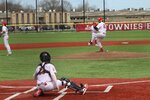
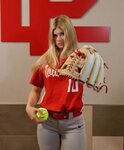
.pdf.jpg)


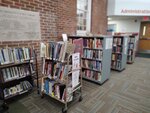

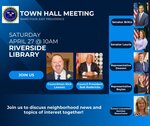
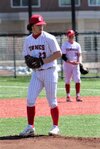








Comments
No comments on this item Please log in to comment by clicking here